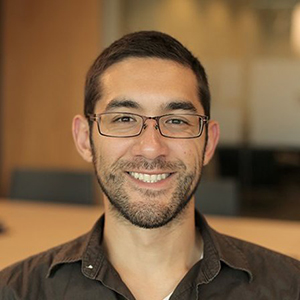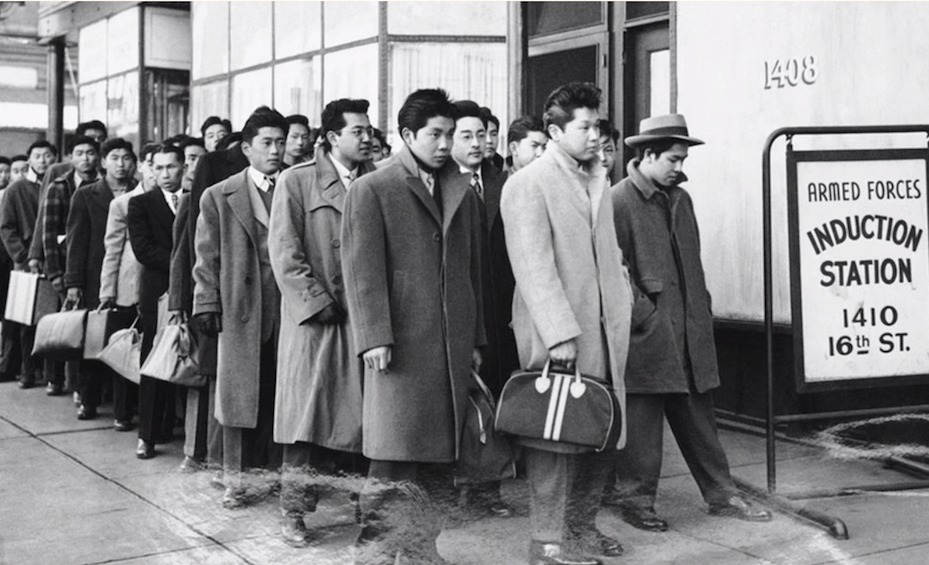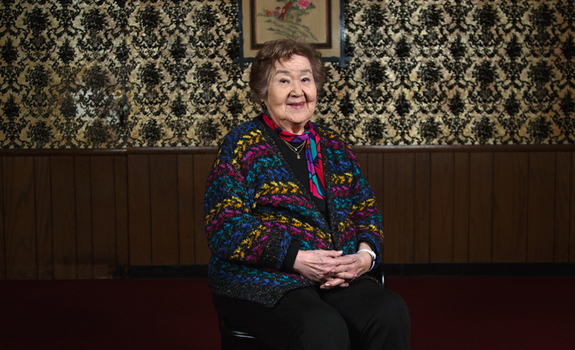 by Matthew Hashiguchi, documentary filmmaker
by Matthew Hashiguchi, documentary filmmaker
Over the past year, I’ve been asked many times about the correlation between Japanese Americans and Muslim Americans.
I recently completed a documentary film, Good Luck Soup, which chronicles my family’s experience in the decades after the World War II Internment Camps. Many suggest that the Japanese American experience of the 1940s mirrors the Muslim American experience of today. While there are similarities, the starkest isn’t between Muslims and Japanese Americans, rather, it’s between the American public of the 40s and today. Both periods used fear to rationalize crude, racist and hateful gut reactions towards people who are not considered “American” because of how they look, pray and culturally associate.
After the Berlin attack, President-elect Donald Trump said, “All along, I’ve been proven to be right. 100 percent correct.” Asked about a ban on Muslims or a registry, Trump responded, “You know my plans.”
While these references are alarming, I don’t believe our nation would allow it to happen. What I do fear is the ease with which many have degraded, isolated and vilified an entire religion (1.6 billion Muslims in the world, of which 3.3 million live in the United States) on social media, national television, in print publications and within private conversations. Hateful rhetoric can mutate into something far more putrid than a registry or political action. It can become a belief.
Clearly, there is a current threat from terrorists and maniacs claiming allegiance to ISIS, just as there was a threat from the Japanese, Germans and Italian armies during World War II. But, one shouldn’t need to be Japanese American, or Muslim American, to know the dangers of labeling and stereotyping an entire race, ethnicity or religion. At one time or another, Irish, Italian, Jewish, Polish or Puerto Rican people (just to name a few) have all been blanketed with harmful misconceptions. We may not all know the sting of prejudice, but at the very least, we should all be able to understand that someone in our family tree was disliked because of their heritage, and not their actions. We should all be mindful of where our families come from and prevent our histories from dissipating with time.
Unfortunately, racism does not die easily. It festers and is passed down more like an inherited illness, from parent to child and then to grandchild, and continues to foment hatred and disdain through each generation. I know this because my family has seen it. In 1942, my grandparents were incarcerated in internment camps because they were Japanese. After they relocated to Cleveland, Ohio, they were called Japs and gooks as they assimilated into a predominantly black and white region. In the 1970s, my father was called a chink for eating at a restaurant within a certain Cleveland neighborhood. And in the 1990s, my siblings and I were called Japs, chinks and gooks, on a regular basis, while growing up in an east-side suburb of Cleveland.

The collective experiences of these three generations taught me that racism is learned and passed down from parent to child. Fifty years from now, will young Muslim Americans growing up in Chicago, Cleveland or Miami hear the same stereotypes, slurs and accusations that their parents or grandparents hear today? Will they be told to “go back to your country,” and labeled as a terrorist? I hope not.
But, if we don’t learn to address war, race and terrorism with the levels of complexity that they deserve, our society will repeat the same ignorant acts. Unfortunately, the fear rippling through the American public today seems akin to the fear of the 1940s. Can the children and grandchildren of those who interned my grandparents do better?
Matthew Hashiguchi is an award winning documentary filmmaker and Assistant Professor in Multimedia Film & Production at Georgia Southern University whose work focuses on the diverse cultural, social and ethnic stories of American society. Matthew’s work has screened in film festivals throughout the world and has been featured in various outlets such as The New York Times, The Washington Post and Al Jazeera.


satya pattanaik
January 25, 2017
Brilliant write up!